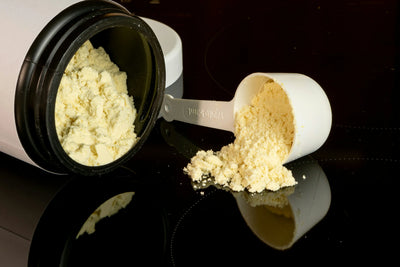Introduction
Dogs are some of the most loyal companions in many homes, brightening our lives with their unconditional love and joy. However, when we see them suffering from health issues, concerns can arise in our hearts. One such issue, “acid reflux in dogs” (also known as gastroesophageal reflux disease), is a common digestive problem that may cause discomfort to dogs and even affect their daily lives.
Acid Reflux in Dogs
Acid reflux refers to the phenomenon of stomach acid, bile, or undigested food backing up from the stomach into the esophagus and even into the mouth. If left untreated, it can lead to more serious health problems such as esophagitis or stomach upset.
As a dog lover, understanding the causes, symptoms, treatments and prevention methods of acid reflux in dogs will not only help us take better care of our furry children, but also bring them back to health and vigor. Next, let's dive into this topic and take care of your dog's health with care.

Why do dogs get acid reflux?
There are often multiple reasons hidden behind acid reflux in dogs. Just like humans, a dog's digestive system can be affected by diet, lifestyle and physical condition. Here are some common “culprits”:
Dogs' stomachs are particularly sensitive to certain foods. If we accidentally feed high-fat, greasy or spicy foods, such as fried chicken, creamy cakes or spicy snacks from the human table, it may stimulate the stomach to produce too much acid, resulting in acid reflux. In addition, some dogs may be particularly sensitive to caffeine (as found in chocolate) or alcohol (as found in some human foods), which can make the stomach “flip”.
Round dogs may be cute, but excess weight can be a health hazard. Obesity can cause a buildup of abdominal fat, which presses down on the stomach and makes acid reflux more likely. This is especially true for little ones who like to “lie down” but don't get enough exercise, which can put even more pressure on the stomach.
Some acid reflux problems may stem from deeper health conditions. For example, gastritis, gastrointestinal disorders or delayed gastric emptying can interfere with the normal digestive process. There is also a congenital condition called a “diaphragmatic hernia,” which can leave the stomach structurally abnormal and increase the risk of acid reflux.
Certain medications, such as nonsteroidal anti-inflammatory drugs (NSAIDs) or corticosteroids, can weaken the lower esophageal sphincter. This small sphincter acts as a “gatekeeper” for the stomach, and when it is loosened, acid can “cross the border” into the esophagus.
If your dog has recently undergone surgery or a checkup, the anesthesia may cause the esophageal sphincter to temporarily relax, resulting in acid reflux. This is usually short-lived, but needs to be monitored closely.
A dog's lifestyle can also affect digestive health. For example, prolonged periods of immobility or eating immediately after strenuous exercise may disrupt the stomach's normal work rhythm.
Dogs can't talk, but they tell us with their actions and physical reactions, “I'm not feeling well!” Here are some typical symptoms of acid reflux that are worth paying more attention to:
Reflux: Your dog may vomit up undigested food, bile, or even just a small amount of liquid, as if he had an “acid burp”.
Coughing or dry heaving: Repeated coughing, dry heaving or gagging, especially after eating, may be an attempt to relieve esophageal discomfort.
Drooling: If your dog suddenly becomes “drooling”, it may be due to stomach acid irritating the mouth and esophagus.
Loss of Appetite: Not interested in your favorite snack? Acid reflux may make your dog feel “off” eating.
Weight loss: Chronic appetite loss can cause weight to slip away.
Restlessness after eating: After eating, your dog may show signs of irritability, moaning, or even pacing as if to say, “Stomach upset!
Bad Breath: If your dog's breath becomes a little “sour,” acid reflux may be to blame.
These symptoms can occur individually or in combination. If your dog is exhibiting any of these symptoms frequently, it's important to contact your veterinarian to find out why.
How to Treat Acid Reflux in Dogs Naturally?
Dogs are the most loyal companions in our lives, bringing us countless warm moments with their wet noses and wagging tails. However, when our dogs show discomfort due to acid reflux (gastroesophageal reflux), such as frequent dry-heaving, loss of appetite, or drooling, our hearts are torn up. Not only is acid reflux hard on dogs, it can also affect their energy and happiness. The good news is that with some natural, gentle methods, we can help our dogs relieve their acid reflux symptoms and regain their health and smiles.
Natural treatment for acid reflux in dogs centers on taking care of their digestive system in the most natural way possible, starting with diet, lifestyle and natural supplements. Below, we'll delve into these methods in the hopes of providing practical and heartwarming advice for every dog lover, so that every day of your dog's life is filled with comfort and happiness.
1. Diet Adjustment
A dog's stomach is like a sensitive little universe, which may “lose its temper” if it is not careful. Through scientific dietary management, we can create a more friendly digestive environment for dogs.
Preparing a low-fat, low-protein diet for your dog is the first step in relieving acid reflux. Greasy meats, spicy condiments or processed foods are like “bombs” in the stomach that can easily trigger acid reflux. Instead, ingredients like cooked chicken breast, turkey or sweet potatoes are easy to digest and “lighten” the stomach. Imagine your dog licking his lips in satisfaction as he eats a soft, mashed sweet potato!
Feeding your dog too much food at once may overload his stomach and increase the risk of acid reflux. Why don't you divide your daily food into 3-4 small portions and make each feeding a small ritual? This not only reduces the pressure on the stomach, but also allows your dog to enjoy more “meal time”.
Eating before bedtime may cause the stomach acid to “reflux” while the dog is lying down. To avoid this, it is recommended that you stop feeding your dog 2-3 hours before bedtime to give your stomach time to “rest”.
There are some foods that are known to help with acid reflux, such as high-fat cheeses, acidic citrus fruits, or leftovers from the human table. Understanding your dog's dietary taboos is like building a line of defense for their health.
2. Natural Supplements
Nature has provided us with many gentle “elixirs” that can help soothe your dog's acid reflux. Of course, before using any supplements, be sure to consult with your veterinarian to make sure they are appropriate for your furry child.
Slippery elm bark acts as a gentle guardian, forming a protective film on the lining of the stomach and esophagus to minimize acid irritation. Whether in powder or capsule form, adding it to your dog's food can bring a touch of peace to their digestive system.
Psyllium (also known as medicinal marshmallow root) has natural soothing properties that reduce inflammation in the esophagus and stomach. Think of it like a warm herbal tea that gently soothes your dog's discomfort.
A healthy gut is the cornerstone of the digestive system. Probiotics can help balance your dog's intestinal flora, improve digestion, and reduce the incidence of acid reflux. There are many probiotic products on the market designed for pets, so remember to choose a reputable brand when picking one.
Sometimes, your dog's stomach may need a little help breaking down food. Digestive enzymes act as an efficient assistant, helping food to be absorbed more quickly and reducing acid reflux caused by undigested food.
Pumpkin puree not only tastes sweet, but is also rich in fiber, which promotes intestinal motility and improves digestion. Whether it's homemade pumpkin puree or a canned product, adding it to your dog's diet in moderation will help them eat happily and digest smoothly.
3. Lifestyle Changes
Your dog's health doesn't just depend on what they eat, but also on their lifestyle. By making a few small changes, we can make every day more comfortable for our dogs.
A simple but effective trick is to feed your dog from an elevated food bowl. By keeping your dog's head slightly elevated while he eats, the food passes more smoothly into the stomach, reducing the possibility of reflux. It's like helping your dog “eat straight,” which is both elegant and healthy.
Obesity puts extra pressure on your dog's stomach and increases the risk of acid reflux. Help your dog stay in shape with a proper diet and moderate exercise, such as a daily walk in the park or a game of ball chase. Doesn't it also make you feel better to watch them prancing around in the grass?

Stress is not only the enemy of human beings, it also affects the health of dogs. Frequent moves, unfamiliar surroundings or lack of companionship can make your dog anxious, which in turn can aggravate acid reflux. Try giving your dog a regular routine and calming them down with interactive toys or petting. An occasional relaxing session of “couch paralysis” can also help your dog feel secure.
Moderate exercise promotes gastrointestinal motility and reduces the incidence of acid reflux. Whether it's an early morning jog or an evening game of Frisbee, exercise can get your dog's digestive system “moving”. Of course, remember to avoid feeding immediately after strenuous exercise, so as not to catch the stomach “by surprise”.
At bedtime, slightly elevating your dog's head, such as with a soft pillow or folded blanket, can reduce the possibility of acid reflux during the night. Wouldn't it be reassuring to watch your dog sleep soundly through the night?
4. Other Natural Remedies
In addition to the above methods, there are some other natural remedies that can add to your dog's acid reflux treatment:
Herbs such as licorice and chamomile are known for their soothing properties for upset stomachs. They can be used as supplements and added to your dog's diet in moderation to bring a cooling soothing touch to the stomach.
More and more pet owners are trying acupuncture and Chinese medicine to alleviate their dog's health problems. These methods may have an ameliorating effect on acid reflux symptoms by regulating the body's balance. If you are interested in this, consult a professional pet herbalist.
Gentle massage not only relieves your dog's anxiety, but also improves circulation and digestion. Spending a few minutes a day stroking your dog's back or belly is like saying to them, “Everything is going to be okay.”
Natural remedies, while gentle, are not a cure-all. Always consult your veterinarian before trying any supplements or therapies to make sure they are right for your dog. If acid reflux symptoms persist or worsen, such as frequent vomiting and significant weight loss in your dog, it may be a sign of a more serious health problem, and it's only wise to seek medical attention promptly.
As upsetting as acid reflux in dogs can be, it's well within our power to help them get their health and happiness back with dietary modifications, natural supplements, and lifestyle optimization. Every carefully prepared meal for your dog and every evening walk with them is a sign of deep love for them. Let's use these natural, gentle ways to guard every breath and every moment of joy for our dogs. Because the health and happiness of our dogs is always our greatest wish.
Do Probiotics Help with Acid Reflux in Dogs?
Dogs are the little angels of the family, and they bring us countless cozy moments with their wet eyes and cheerful tails. However, our hearts are clenched when our dogs frequently dry-heave, lose their appetites, or even show uneasiness due to acid reflux (gastroesophageal reflux). Not only does acid reflux make dogs uncomfortable, it can also affect their energy and sense of well-being. As dog lovers, we always want to find the safest and most natural way to help them regain their health. In recent years, probiotics have been gaining attention as a gentle “gut guardian”. So, can probiotics really help relieve acid reflux in dogs? And how does it work? Let's walk through this topic together, and use love and science to protect your dog's health.
Probiotics are simply “friendly bacteria” that are good for the body. They live in your dog's intestinal tract and quietly maintain the balance of the digestive system. For acid reflux, probiotics are like an attentive gardener, helping to restore harmony to your dog's gastrointestinal tract in a variety of ways. The following are the five “magic” mechanisms of probiotics to relieve acid reflux:
1. Regulate Intestinal Flora
The intestinal tract is like a bustling community inhabited by countless bacteria - both beneficial and disruptive. When harmful bacteria “dominate”, the intestinal microecology will be out of balance, which may lead to excessive secretion of gastric acid and increase the frequency of acid reflux. The addition of probiotics is like sending an army of reinforcements to the intestinal tract, which can quickly replenish beneficial bacteria, inhibit the growth of harmful bacteria, and re-create a harmonious intestinal environment. This balance not only helps to stabilize the level of stomach acid, but also makes the dog's stomach less “noisy”, and the occurrence of acid reflux will naturally be reduced.
2. Improve Digestion
A common cause of acid reflux is that food stays in the stomach for too long, and the accumulation of undigested food stimulates acid reflux. Probiotics are like an efficient “digestive housekeeper” that enhances digestion and absorption in the intestines and speeds up the breakdown and passage of food. For example, probiotic stars like Lactobacillus and Bifidobacterium can improve your dog's digestion of food, making it less taxing on the stomach. Imagine the happy picture of a dog that is no longer bloated or upset after eating, but licking its mouth in contentment!
3. Enhance Immunity
Acid reflux is sometimes accompanied by mild inflammation of the gastrointestinal tract, such as the esophagus or gastric mucosa is “bullied” by gastric acid to redness, swelling and discomfort. Probiotics can strengthen the barrier function of the intestinal mucosa, as if for the gastrointestinal tract to put on a “protective clothing” to reduce the occurrence of inflammation. This protective effect not only relieves the discomfort caused by acid reflux, but also makes your dog's digestive system more resilient and more comfortable in the face of all kinds of small challenges.
4. Control Stomach Acid Levels
Excess stomach acid is one of the “culprits” of acid reflux, and probiotics have a unique role to play in regulating acid production. Some studies have found that probiotics can help maintain the balance of stomach acid levels by affecting signaling in the intestines and stomach. It's like installing a “smart regulator” in the stomach to ensure the acidity needed for digestion, but also to prevent excess stomach acid from “running” to the esophagus to cause trouble. The result? Your dog's esophagus is less irritated and acid reflux symptoms are reduced.
5. Relieving Stress and Anxiety
Have you ever noticed that your dog's appetite deteriorates when he is stressed or upset? Stress and anxiety not only affect your dog's mood, but can also aggravate acid reflux symptoms. Miraculously, probiotics not only work in the intestines, but also indirectly affect your dog's emotional state through the “gut-brain axis”. Healthy gut flora can help regulate neurotransmitters, making your dog feel more relaxed and at ease. Whether it's the discomfort of moving to a new home or the stress of an unfamiliar environment, probiotics can bring your dog a sense of calm from the heart to the stomach, indirectly reducing the incidence of acid reflux.
Through the above mechanisms, probiotics are like an all-around health helper, working silently from the intestines to the stomach to the overall state of the dog. Not only do they directly relieve the discomfort of acid reflux, but they also create a healthier “internal environment” for your dog by improving digestion, strengthening the immune system, and stabilizing the mood. What's more, probiotics are a natural, gentle intervention that is better suited to long-term health management than medications.
However, it is important to note that probiotics are not a “cure-all”. If your dog's acid reflux symptoms are severe, such as frequent vomiting, weight loss, or persistent discomfort, it may be a sign of other underlying health problems, such as gastritis or esophageal disease. At this point, prompt medical attention is paramount, and probiotics can be used as an adjunct to your veterinarian's treatment plan to help your dog recover more quickly.
How to choose the right probiotic for your dog?
Since probiotics have so many benefits for acid reflux, the next key question is: how to pick a suitable probiotic product for your dog? Here are some useful tips:
The “fighting power” of a probiotic depends on the number of live bacteria. When choosing a product, check the amount of live bacteria (usually expressed in CFU, colony forming units) on the package to make sure that each serving contains enough live bacteria to actually reach the intestine and work. But don't overdo it, too high a dose may instead upset your dog's stomach.
Different strains of probiotics have different “specialties”. For example, Lactobacillus and Bifidobacterium are “veterans” in improving digestion, while Levucell SB is more tolerant of acidic and alkaline environments, and can survive the “test” of gastric acid to do its job better. If you're not sure which strain is more appropriate, consult your veterinarian and choose one for your dog's specific condition.

There are many different probiotic products on the market, but their quality varies. Prioritize brands that have a good reputation and have undergone rigorous testing, especially probiotic products designed for pets. After all, your dog's health is not something to be trifled with, and a reliable product can make our efforts twice as effective.
Probiotics usually come in the form of powder, capsules or chewable tablets. To make it more palatable to your dog, you can mix probiotics into their favorite foods, such as yogurt (unsweetened) or pumpkin puree. However, remember to control the dosage according to product directions or veterinary recommendations to avoid overdose.
While probiotics are great for relieving acid reflux in dogs, it's best to chat with your veterinarian before using them. After all, every dog has a different constitution and health condition, and professional advice can make a difference. If the dog has other underlying conditions, such as kidney problems or immune system disorders, the choice and dosage of probiotics may need to be specially adjusted.
In addition, the effects of probiotics take time to build up, and it usually takes a few weeks of use to see significant improvement. Patience is key, and just as we grow with our dogs, every bit of care blossoms in their health.
Can probiotics help with acid reflux in dogs? The answer is yes. It provides an umbrella for your dog's gastrointestinal tract by regulating intestinal flora, improving digestion, controlling stomach acid, boosting immunity and relieving stress. As a natural, gentle and healthy choice, probiotics not only help dogs get rid of acid reflux, but also give them a stronger body and a happier mood.
Every dog deserves to be treated gently. Whether it's a walk in the morning or a snuggle in the evening, our love is in the little things. Let's use probiotics as a small gift to accompany your dog through a healthy day. Because every smile is our greatest happiness.





